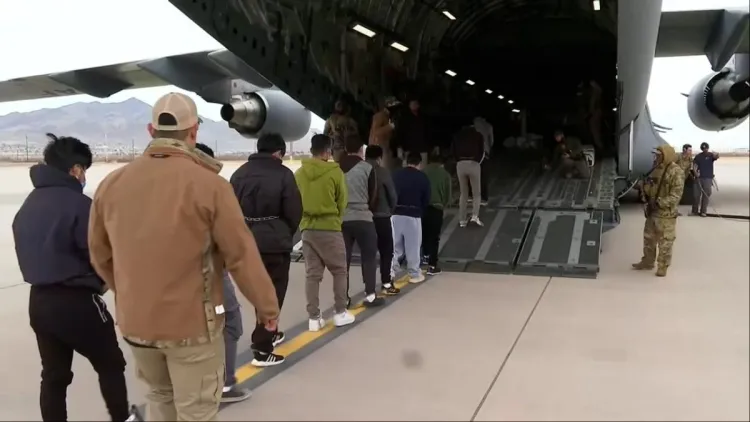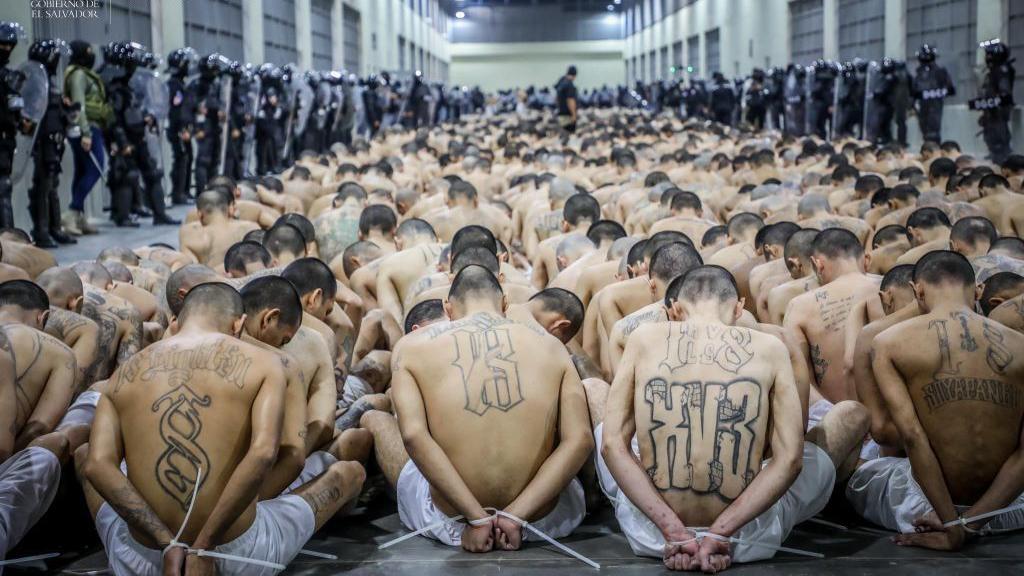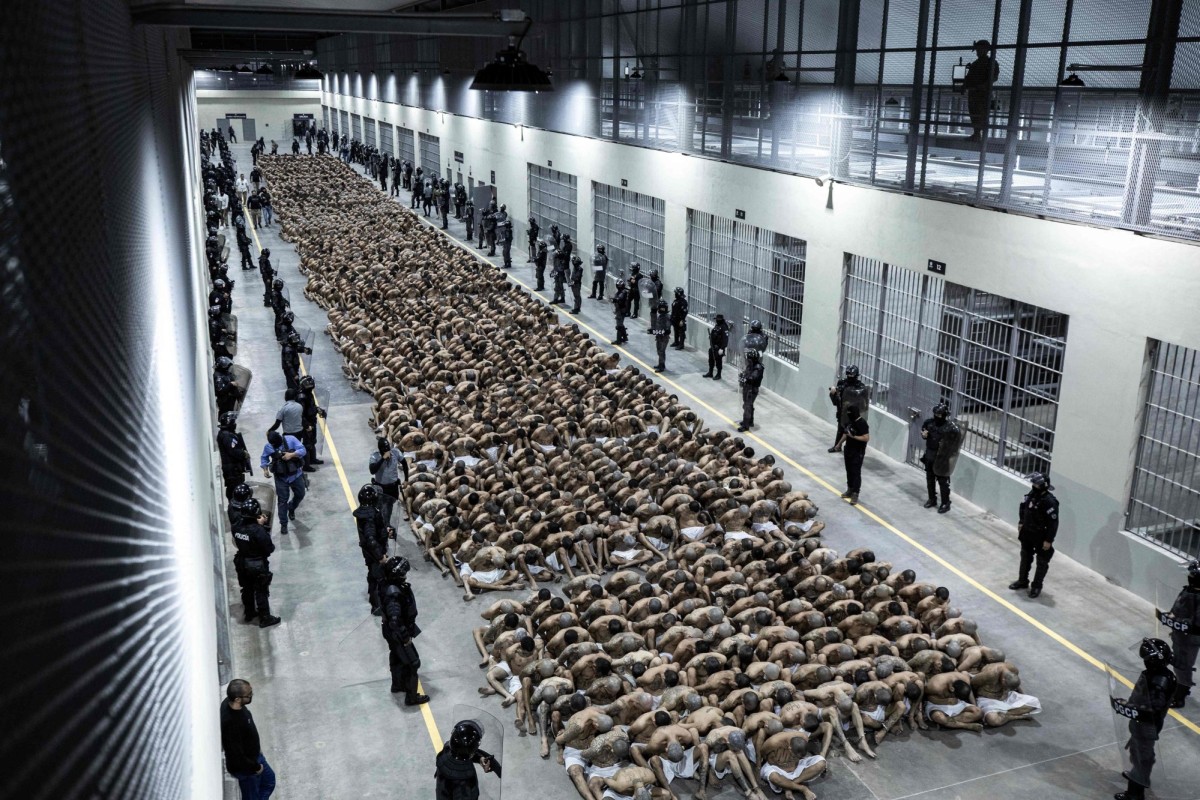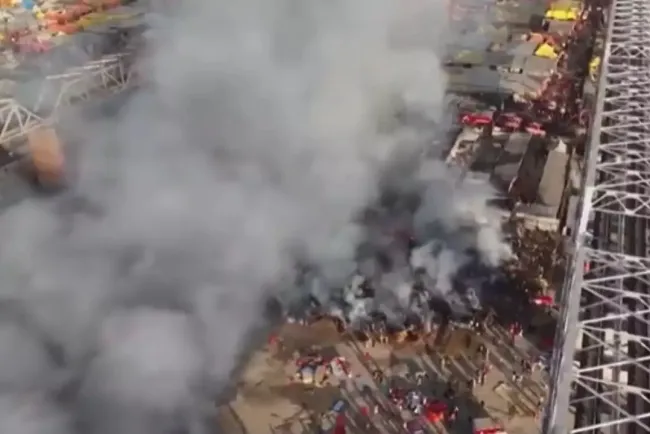Trump Intensifies Immigration Crackdown with New Measures and Diplomatic Efforts
U.S. President Donald Trump’s crackdown on illegal immigration has escalated, with the first set of flights carrying migrants bound for the Guantanamo Bay military base in Cuba. This move comes as the Trump administration intensifies its efforts to address illegal immigration and illegal border crossings, particularly from Central America and other regions. Ahead of the migrants' arrival, U.S. Marine forces have been deployed to the base to manage the situation, highlighting the seriousness of the administration's stance on immigration.

Meanwhile, the president is also examining the legality of sending violent American criminals to prisons in foreign countries, following a proposal by El Salvador to house such individuals in their facilities. Trump suggested that this could be a cost-effective solution, but emphasized that he is still studying the legal implications of such a move.
Guantanamo Bay Migration Flights and Military Deployment
The U.S. administration's policy shift to send illegal migrants to the Guantanamo Bay military base marks a significant escalation in Trump’s hardline immigration policies. U.S. Marine forces were seen boarding military aircraft, preparing to oversee the transfer of migrants to the base, which has long been a site for holding detainees. The U.S. government has justified this move as part of a broader effort to curb illegal immigration and manage the flow of migrants trying to enter the United States.
While details of the exact number of migrants being transferred remain unclear, the decision to utilize a military base for this purpose signals the administration's readiness to take drastic measures in response to the growing numbers of migrants attempting to cross the southern border. The controversial move has raised concerns among immigrant rights advocates, who argue that it could exacerbate the already dire humanitarian situation at the border.
Trump's Exploration of Foreign Prisons for Violent Criminals
In another controversial development, President Trump has been considering the idea of sending dangerous American criminals to prisons in other countries. This idea was sparked by an offer from El Salvador, which proposed to house violent American criminals in its prisons if the U.S. could send them there. Trump remarked that such an arrangement would likely be less expensive than maintaining the prisoners in U.S. facilities.

The suggestion has sparked a legal debate, with Trump acknowledging that he needs to study the legality of such a move. While it may appear as a cost-saving measure, sending criminals to foreign prisons could raise a host of legal, diplomatic, and human rights concerns. Critics argue that it would violate international law and could lead to diplomatic tensions with countries that are asked to house American prisoners.

Rubio’s Diplomatic Mission to Central America
As part of the Trump administration’s broader strategy to manage migration from Central America, U.S. Secretary of State Marco Rubio visited Costa Rica to negotiate with local governments on measures to curb migration flows. Rubio announced that the U.S. would provide additional biometric technology and waivers to Costa Rica to help deter migrants from using the country as a transit point to reach the United States.

During his visit, Rubio blamed Venezuela, Cuba, and Nicaragua for exacerbating the regional migration crisis, calling them "enemies of humanity" for their roles in destabilizing the region and contributing to the migration exodus. The U.S. has been pressing Central American nations to take a more active role in stemming the flow of migrants, particularly those coming from further afield, including from Asia and Africa. Rubio’s remarks highlight the growing tensions between the U.S. and several Latin American governments over migration and the role of these countries in facilitating or preventing migrant movements.
California Immigrant Families Concerned About School Safety
As the immigration crackdown intensifies across the United States, many immigrant families in California have raised concerns about the safety of their children, particularly in the context of education. With the heightened fear of deportation and increased immigration enforcement, parents worry about the impact this could have on their children's schooling.
California Attorney General Xavier Becerra reassured immigrant families, emphasizing that all students, regardless of their immigration status, have the right to attend school. He also reiterated that educational records and personal information should remain confidential, providing a safeguard against any attempts to use school records to track down undocumented individuals. This stance aligns with California’s longstanding policy of protecting immigrants, and it seeks to ensure that children’s access to education remains unaffected by their families' immigration status.
Academics and school officials have echoed these assurances, working to create safe environments where immigrant children can continue their education without fear. However, the political climate surrounding immigration has created a tense atmosphere for many families, leading to heightened anxiety among parents.
Conclusion: A Divisive and Complex Issue
President Trump’s continued efforts to clamp down on illegal immigration have sparked widespread debate and controversy, both within the United States and internationally. While the administration’s policies have garnered support from those advocating for stricter border control, they have also drawn criticism for their potential to violate human rights and exacerbate the suffering of vulnerable migrant populations.
The use of military facilities like Guantanamo Bay to house migrants, the exploration of sending American criminals to foreign prisons, and the diplomatic pressure on Central American countries are just a few of the latest developments in this ongoing saga. At the same time, immigrant families in California and other states continue to navigate an increasingly uncertain environment as they seek to ensure the safety and well-being of their children.
As the situation continues to evolve, the international community will be closely watching how the U.S. government balances its security concerns with the humanitarian needs of migrants, as well as the broader legal and diplomatic implications of these controversial policies.
What's Your Reaction?















